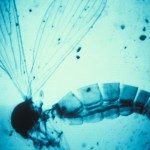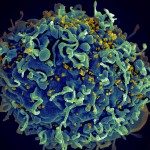About
Multiorganismal interactions in Wolbachia-based strategy against dengue virus – MINT
In Noumea, New Caledonia, Aedes aegypti mosquitoes infected with Wolbachia, a heritable intracellular symbiotic bacterium that renders its host resistant to viruses, have been deployed as a biocontrol strategy to prevent dengue virus (DENV) outbreaks. However, Wolbachia infection in the mosquito has been shown to alter the diversity of its resident viruses and bacteria. Furthermore, it is known that the mosquito microbiota affects the susceptibility of the mosquito host to arboviruses and can alter vector competence, which in turn may have downstream implications on arbovirus transmission by mosquitoes. However, despite the potential for these interactions to impact the sustainability of the Wolbachia intervention, our current understanding of the interactions between Wolbachia and the mosquito microbiota is still scarce.
Here we aim to study the global interactions between Wolbachia and the mosquito microbiota and their effects on mosquito vector competence for arboviruses. We hypothesize that these interactions will modulate the strength of Wolbachia-induced DENV blocking, impacting the long-term efficacy of the Wolbachia biocontrol strategy currently being implemented in 13 countries around the world.
Metagenomics analysis on wild mosquitoes that are Wolbachia-infected and Wolbachia-free will be performed to investigate how Wolbachia infection changes the composition of the mosquito microbiota (bacteria and viruses). Bacterial and viral components of the microbiota that showed differential abundance in the presence of Wolbachia will be isolated. We will then investigate the capacity of these subsequent isolated bacteria and viruses to influence vector competence for DENV in Wolbachia-infected and Wolbachia-free Ae. aegypti.
With the Wolbachia strategy being deployed in more and more countries, it is critical to study the impacts of Wolbachia × microbiota multitrophic interactions in mosquitoes on the virus-blocking phenotype and on arbovirus transmission. The originality of MINT lies in i) using a whole-community approach to understand the microorganismal interactions on a host phenotype ii) attempting to alter microbiota composition in Ae. aegypti to measure its impact on Wolbachia-induced virus-blocking. For this purpose, the MINT project combines virology, bacteriology, bioinformatics, vector biology, and medical entomology expertise to examine a fundamental research question within the context of a highly relevant eco-epidemiological study environment. The outcomes of MINT will provide the necessary and timely knowledge to identify environmental risk factors that would either enhance or compromise the Wolbachia-induced virus-blocking, and therefore, the efficacy of Wolbachia-based vector control.







